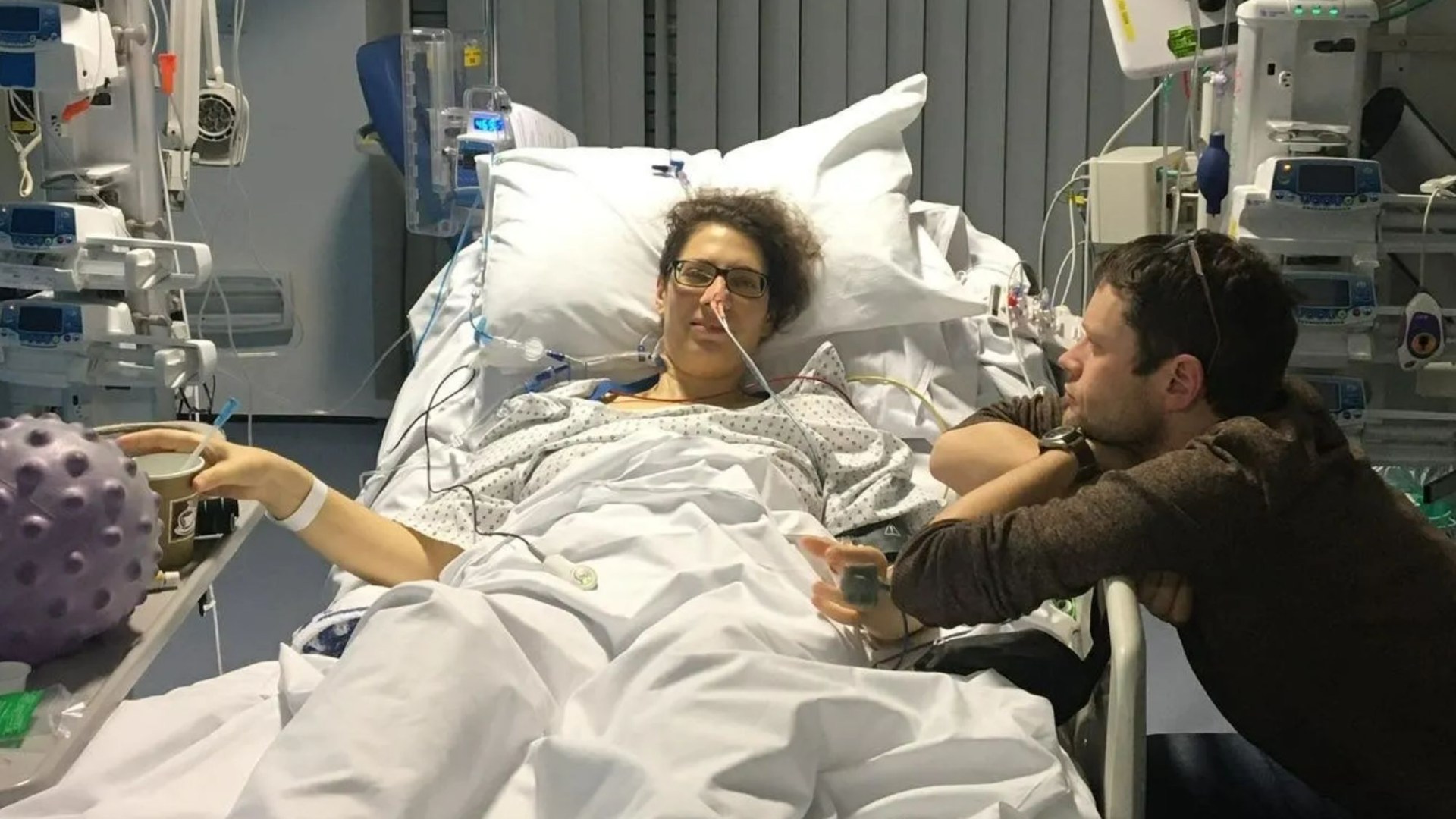A MUM diagnosed with cancer was given just 12 weeks to live after going back and forth with doctors about her symptoms “for years”.
Bryony Thomas, 46, revealed two key questions doctors failed to ask her.
4

4
The mum-of-one was told she had pancreatic cancer in December 2019.
She’d been visiting doctors “on and off for years” as she battled intense fatigue and changes to her toilet habits.
The turning point came when Bryony, who lived in Bishopston, Bristol at the time, noticed her pee had darkened to the colour of “tea without milk” and her skin started turning yellow.
Doctors discovered a tumour in the mum’s pancreas.
Read more on pancreatic cancer
Bryony was initially told that her tumour might be inoperable and that she would only have around 12 weeks to live if doctors were unable to remove it.
She readied herself for what she thought would be her last Christmas with her then eight-year-old daughter Eleni, wrapping presents in hospital.
But consultants at Bristol Royal Infirmary were able to successfully remove the tumour, just two weeks after the mum’s devastating diagnosis.
Bryony is now calling for doctors and patients to become more comfortable talking about poo – and for vague terms like ‘bowel movements’ to be “banned”.
She said: “I went to see GPs on and off for years before my diagnosis and I was asked about my ‘bowel movements’ but no one ever asked me if my poo was pale or floating.
“If they had I would have told them that it was. I later learned that this can be a sign of pancreatic insufficiency.”
According to Pancreatic Cancer UK, the disease can cause diarrhoea – watery stools that strike more than three times a day – as well as constipation, which is when poo is firm and difficult to push out.
Pancreatic cancer can also make your poo pale, oily and smellier than normal, which is referred to as steatorrhoea.
Sufferers may also notice that their poo floats and is difficult to flush down the toilet.
This is because there’s too much fat in the poo.

4

4
It happens if pancreatic cancer has affected your digestion, so that fat in your food isn’t digested properly.
After a series of tests failed to spot anything wrong with her, in December 2019 Bryony noticed her urine had turned fluorescent yellow one day and a deep brown the next.
She called 111, who sent her to a local hospital’s Emergency Department.
Doctors ruled out pancreatitis, gall stones and hepatitis before scans showed a tumour on Bryony’s pancreas.
By that time, the mum’s pee was “very dark”, according to a post she wrote for Pancreatic Cancer UK, and her poos were “whitish grey like child’s modelling clay”.
Consultants at the regional Hepatobiliary Multidisciplinary Team at the Bristol Royal Infirmary were particularly worried about the tumour being on Bryony’s portal vein – which carries blood from the gastrointestinal tract, gallbladder, pancreas and spleen to the liver.
We all need to get used to talking about our poo, and doctors do too.
Bryony Thomas
To remove it, they would also have to remove a section of the vein itself.
After days spent in limbo, Bryony was told on December 27 that doctors would be able to operate on her tumour and she was wheeled in for surgery two weeks after her diagnosis.
Surgeons removed the tumour, three affected lymph nodes and a 1.5cm section of the wall of the portal vein.
The complex procedure was successful and Bryony also underwent chemotherapy after her operation.
But now needs lifelong medication to replace enzymes that would usually be made by her pancreas.
Know your poo
Five years later, Bryony lives in Stroud and is cancer-free.
She praised the team at University Hospitals Bristol and Weston NHS Foundation Trust.
Bryony, who runs a marketing consultancy, said: “I simply would not be alive without the work of the team.
“Only seven per cent of people with my diagnosis make it this far and I am so grateful.
“Even when I was having chemotherapy in the Dental Hospital, during the coronavirus pandemic, care was amazing, and I can’t fault the treatment I’ve had.”
She’s now planning to run the London Marathon in aid of Pancreatic Cancer UK.
Bryony, who lives with husband Tom, 47, and daughter Eleni, 13, believes people need to feel confident discussing symptoms without embarrassment.
“I think the term ‘bowel movements’ should be banned,” Bryony said.
“We all need to get used to talking about our poo, and doctors do too.”
Symptoms of pancreatic cancer
PANCREATIC cancer doesn’t always cause symptoms in its early stages.
As the cancer grows and you do begin to show signs, these may come and go and be unspecific, making it hard to diagnose, according to Pancreatic Cancer UK.
Common symptoms include:
- Indigestion – a painful, burning feeling in your chest with an unpleasant taste in your mouth
- Tummy or back pain – it may start as general discomfort or tenderness in the tummy area and spread to the back, which get worse lying down and feel better is you sit forward
- Diarrhoea and constipation – see a GP if you have runny poos for more than seven days, especially if you’ve lost weight as well
- Steatorrhoea – pale, oily poo that’s bulky, smells horrible and floats, making it hard to flush
- Losing a lot of weight without meaning to
- Jaundice – yellow skin and eyes, as well as dark pee, pale poo and itchy skin
Meg Finch-Jones, a consultant in hepatobiliary surgery who operated on the mum, said: “We, the hepatobiliary team, are so pleased that Bryony has done so well and that she has chosen to champion pancreas cancer awareness.
“In her case, if we had not been able to operate while she was jaundiced, the tumour may not have been operable.
“All patients are considered on a case-by-case basis, and a lot of factors go into making these critical decisions.
“But when surgery is possible, aggressive surgery and advanced chemotherapy offer the people in our care the best chance.
“Recent advances in chemotherapy are also improving the lives for patients who cannot have surgery. Overall early diagnosis is key.”




